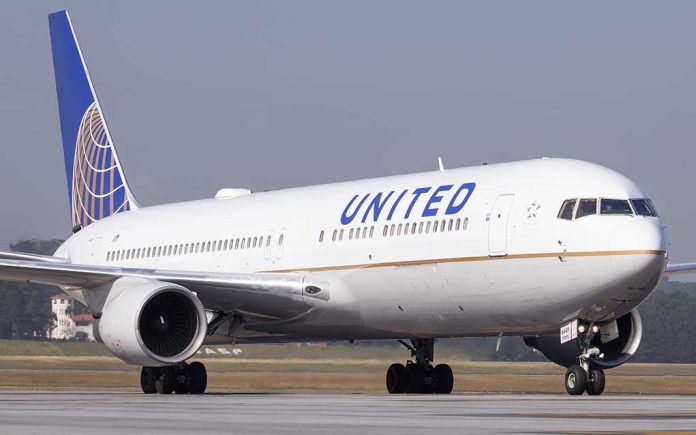
United Airlines is about to reclaim its presence at JFK International Airport through a strategic partnership with JetBlue that will reshape air travel options for millions of American travelers.
Key Takeaways
- United Airlines and JetBlue are forming the “Blue Sky” partnership allowing them to sell seats on each other’s flights and offer reciprocal frequent flyer benefits
- United will return to JFK Airport by 2027 with up to seven daily round-trip flights, while JetBlue gains eight flights at Newark
- The collaboration aims to enhance competition against larger carriers, particularly in markets like Boston and Florida
- Elite status travelers will receive benefits including priority boarding and roomier seats across both airlines
- Initial partnership benefits will begin rolling out this fall, though specific timing and financial details remain undisclosed
Strategic Alliance Brings United Back to JFK
United Airlines is making a triumphant return to New York’s John F. Kennedy International Airport through a new collaboration with JetBlue Airways dubbed “Blue Sky.” This partnership allows both airlines to sell seats on each other’s flights and offer reciprocal loyalty benefits, creating a more competitive position against larger carriers. The arrangement addresses United’s years-long struggle to maintain operations at one of the world’s busiest international gateways after its departure in 2015, brief return in 2021, and subsequent exit in 2022 due to limited flight slots.
Under the agreement, United will operate up to seven daily round-trip flights at JFK, while JetBlue receives eight flights at Newark Liberty International Airport. Both carriers have described this flight swap as a “net neutral exchange,” suggesting a balanced trade that benefits both airlines’ strategic positions. The partnership represents a significant development in the domestic airline market, potentially reshaping competition on key routes along the East Coast.
Enhanced Benefits for Travelers
The Blue Sky partnership delivers substantial advantages for frequent flyers of both airlines. Elite status travelers will receive priority boarding privileges and access to roomier seats regardless of which carrier they choose. This reciprocal recognition creates a seamless travel experience across both networks and incentivizes customer loyalty in an increasingly competitive market. While specific implementation timelines remain flexible, both airlines have confirmed that certain aspects of the partnership will begin rolling out as early as this fall.
“United Airlines plans to return to New York’s John F. Kennedy International Airport through a new partnership with JetBlue Airways,” said Scott Kirby, CEO of United Airlines.
For United, this arrangement resolves a long-standing frustration with JFK access that CEO Scott Kirby has repeatedly highlighted as strategically important. The airline’s previous exit from JFK in 2015 redirected its transcontinental flights to Newark, a decision Kirby later called a mistake when he became United’s chief executive. This new partnership enables United to recapture valuable international connecting traffic while maintaining its strong Newark hub operations.
Competitive Implications for the Airline Industry
The partnership positions both carriers to better compete against industry giants like American Airlines and Delta Air Lines, particularly in contested markets such as Boston and Florida. By combining their strengths, United and JetBlue create a more robust network offering that challenges the dominance of larger carriers without requiring a full merger. This arrangement appears designed to navigate regulatory concerns while still delivering many of the benefits that consolidation might provide.
“JetBlue’s CEO Joanna Geraghty emphasized that this collaboration is a significant step forward for the industry, aiming to provide more choices and value for travelers,” said Joanna Geraghty, CEO of JetBlue.
For American travelers feeling the squeeze from limited airline competition and rising fares, this partnership could provide welcome relief. The deal enables both carriers to expand their effective networks without massive capital investments in new aircraft or facilities. This approach aligns with President Trump’s emphasis on smart business deals that create value through strategic partnerships rather than government intervention or subsidies. While financial details remain undisclosed, the arrangement appears structured to deliver immediate benefits while setting the stage for longer-term growth.





